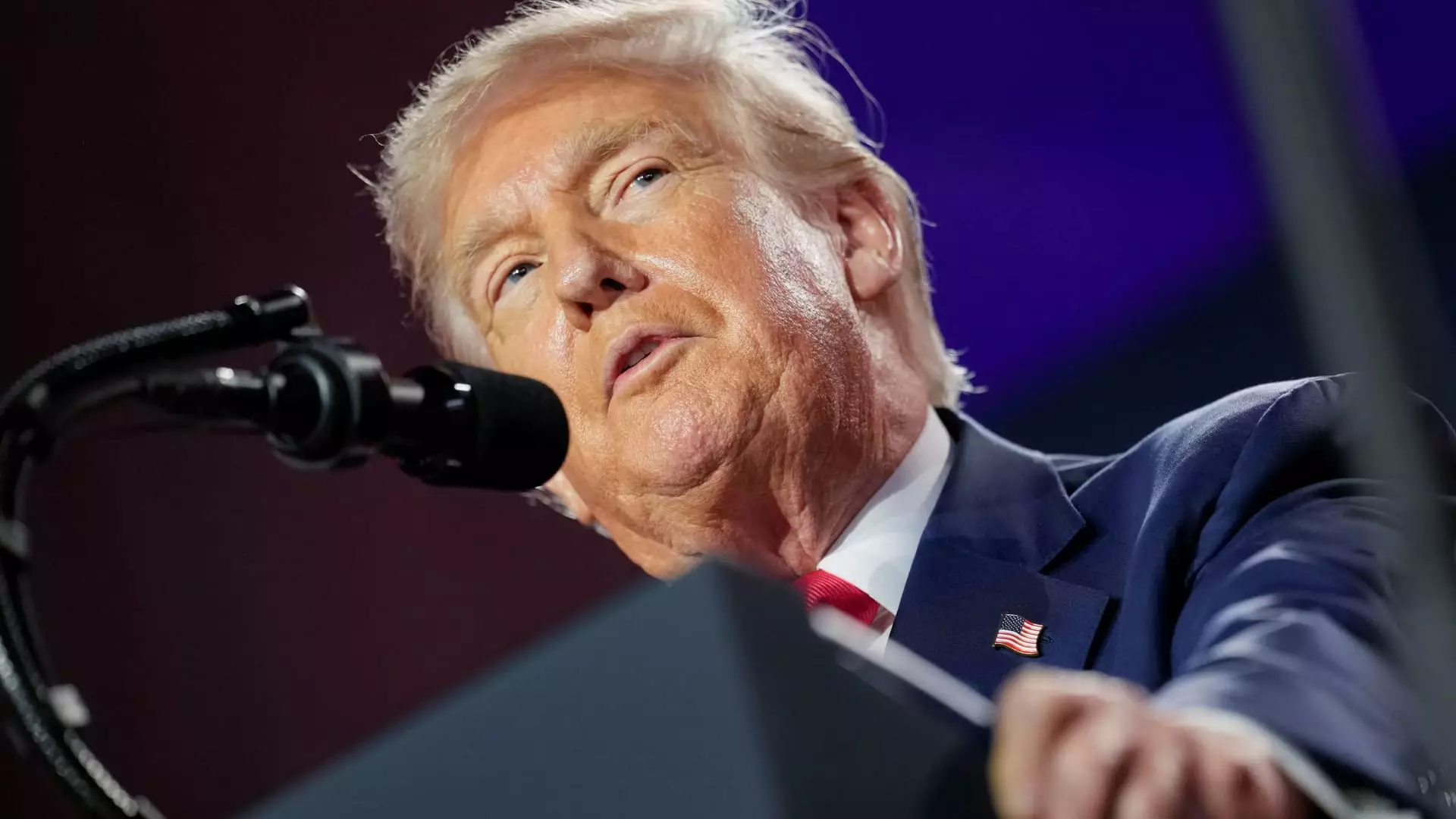In recent years, the politicization of the Federal Reserve has escalated to alarming levels, and the latest developments with President Trump’s unprecedented visit to the Fed headquarters exemplify a dangerous pattern. This act of overt pressure and scrutiny by a sitting president fundamentally undermines the delicate independence that is vital for the stability of the U.S. economy. When political figures allow personal agendas to influence monetary policy, the risk of destabilizing markets and eroding public trust multiplies exponentially. The Fed’s independence must be preserved—not weaponized—if the U.S. is to maintain a resilient economic foundation.
The spectacle of President Trump touring the Fed’s facilities, ostensibly to scrutinize its construction projects, reveals a troubling penchant for politicizing institutions that are designed to operate free from partisan influence. Historically, only a handful of presidents have set foot in the Fed headquarters, and those visits were driven by respect, not interference. By contrast, Trump’s attendance carries a loaded political message: that the central bank’s decisions are vulnerable to partisan pressure. Such overt meddling creates an environment where monetary policy becomes entangled with political optics, jeopardizing the Fed’s credibility and, ultimately, the nation’s financial stability.
Misuse of Power and Ignoring Expert Consensus
Trump’s demands for an immediate reduction in interest rates, alongside his public accusations of incompetence against Jerome Powell, strike at core principles of central banking independence. Central banks are designed to make decisions based on economic data and expert advice, not political whim. When a president dismisses this ethos and seeks to replace or pressure a Fed chair for political gains, it diminishes the trust in an institution that is meant to be a guardian of economic stability.
The discussion surrounding the Fed’s multibillion-dollar construction projects is not just about fiscal prudence but about the signals such conflicts send. Critics, including some within the administration, argue that these renovations are mismanaged or ostentatious displays of excess, yet politicizing such projects distracts from essential conversations about the Fed’s primary mandate: maintaining stable prices and full employment. When charges of mismanagement become political weapons rather than constructive criticism, it undermines accountability and clouds the Fed’s decision-making process.
Furthermore, the administration’s focus on firing or pressuring Powell disregards the broader implications of undermining institutional independence. By pushing a narrative that the Fed is mismanaging the economy, despite expert consensus on the importance of low inflation and balanced growth, political leaders risk fostering a climate of uncertainty that investors and markets find unsettling. Such actions threaten to destabilize the economic fabric that has been carefully woven over decades through bipartisan consensus on the role of an independent central bank.
The Broader Impact of Politicizing Monetary Policy
Beyond the immediate political theater, the attempt to influence the Fed’s decisions has long-term repercussions on policymaking. Injecting politics into monetary decisions not only diminishes the credibility of the central bank but also invites economic volatility. When markets perceive that monetary policy can be swayed by political whims, investor confidence wavers. The fallout can be a spike in borrowing costs, inflationary pressures, or destabilized growth — outcomes that hurt everyday Americans.
Positioning the Fed as a political pawn contradicts the center-ground liberal view that recognizes the importance of independent institutions in safeguarding economic stability. While government involvement in economic policy is necessary, it must be carefully balanced to prevent partisanship from clouding objective decision-making. Attempts to undermine this balance threaten to curse future administrations with the consequences of short-sighted political interference.
Finally, the resistance from legal and constitutional boundaries, like the recent Supreme Court ruling affirming the Fed’s independence, highlights that the institution’s autonomy is not just tradition but a legal shield. Undermining this legal protection in favor of political expediency is a perilous path that risks destabilizing one of the pillars of American economic policy. It is not merely about resisting Trump’s interventions; it is about defending the core principles that sustain a balanced, reflective, and effective monetary system for generations to come.


Leave a Reply